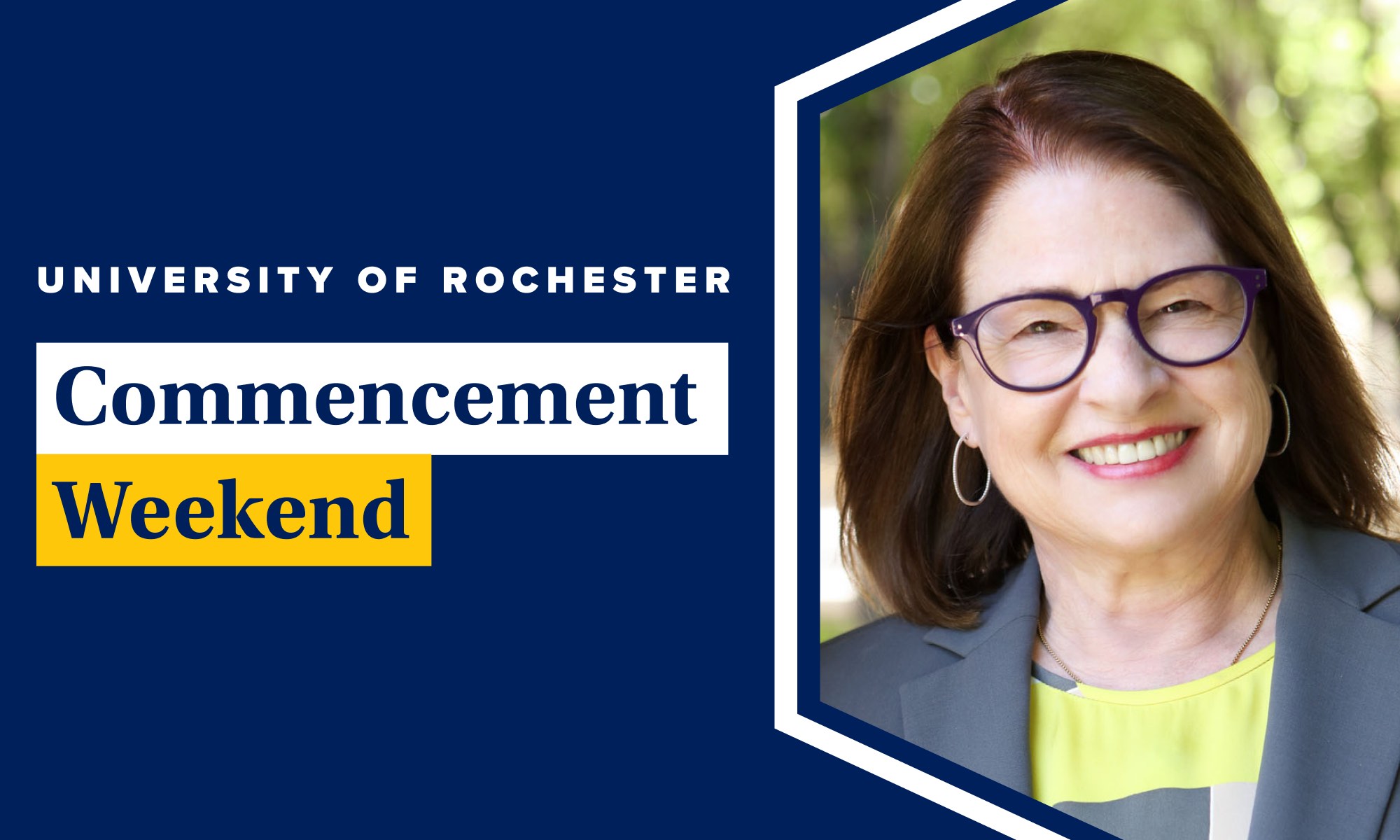The University of Rochester has received a $1 million grant from the Andrew W. Mellon Foundation to increase undergraduates’ engagement with the humanities, a remarkable commitment to a historically important aspect of the liberal arts curriculum at a time when enrollments in the humanities are lagging.
Titled “Humanities for Life,” the five-year initiative is designed to engage students early in their academic careers, to create opportunities for experiences outside the classroom, and to foster community engagement.
While the project is scheduled to begin in the fall, it’s designed to extend well beyond that timeframe. It has several components: support for undergraduate humanities research and mentorship by faculty, development of new humanities curricula, increased community engagement, and the establishment of a shared reading program for incoming students.
“Addressing societal and global issues hinges on having the intellectual background to engage with them, and that’s what study of the humanities provides,” says Gloria Culver, dean of the School of Arts & Sciences, the academic unit that will oversee the project. A biologist who, as an undergraduate, was a C.P. Snow Scholar—a prize for students whose interests span science and the humanities—Culver calls the intersection of disciplines vital to the education of global citizens.
—President and CEO Joel Seligman
“Thinking broadly and collaboratively is our future,” she says. “And the collaborative nature of faculty and students at Rochester is part of what will make this project successful.”
An international trend away from study in humanistic fields has raised concerns among many leaders in higher education.
“The Mellon Foundation’s support is critical for our plan to reinforce the idea that the humanities are an essential part of everyone’s educational experience,” Culver says. “At a time when undergraduates at campuses across the nation are moving away from the humanities, we want to demonstrate the lifelong value that results from early engagement with the humanities. Rochester, in particular, is uniquely positioned to highlight the many ways that the humanities broaden and sharpen students’ perspectives, regardless of the major students choose to pursue.”
“This grant builds on the University’s already significant investments in the humanities, at a time when educational emphasis on the humanities is under assault,” says President and CEO Joel Seligman. “The Humanities for Life program will provide additional opportunities for enhanced experiences and breadth to students’ intellectual formation, and it will furnish a model for developing similar programs at other institutions.”
The Mellon Foundation takes as its mission the strengthening, promotion, and defense of the humanities and arts for diverse and democratic societies. It awards grants in five areas—including the category of Rochester’s grant, “Higher Education and Scholarship in the Humanities”—to support humanistic scholarship, liberal arts and doctoral education, and the performing and visual arts. Since its creation in 1969, the foundation has made more than 15,000 grants, for a total of more than $6 billion awarded.
The new grant is the second $1 million award from the Mellon Foundation to Rochester in the past half-decade. In 2013, the foundation committed that sum to create a fellowship program for graduate students in the humanities to explore new technology.
The foundation has also supported Rochester programs to work with other New York institutions in expanding the reach of the humanities. A grant in 2006 helped to establish the Central New York Humanities Corridor, an interdisciplinary collaboration between Syracuse University, Cornell University, and Rochester, and the foundation gave additional support for the project’s endowment in 2014. It also provided Rochester in 2015 with a grant to establish the Digital Humanities Institute, for tackling large-scale problems in the digital humanities. And it has awarded Rochester a Public Humanities Fellowship, administered through Humanities New York, to support advanced humanities graduate students in exploring the public application of their scholarly interests.
The University has committed itself to ensuring that the humanities are an institutional priority, as well. In 2015, Rochester created a new Humanities Center to serve as a hub for multidisciplinary work around literature, history, the arts, and philosophies of cultures past and present.
Other programs include the Humanities Project—administered by the Humanities Center and supporting work by Rochester faculty in all fields of humanistic inquiry—and an independent faculty committee investigating innovative curricular developments in the humanities.
“In the humanities at Rochester—and in the Humanities Center, which was established last year—we’re committed to critical thinking, inclusiveness, civility, empathy, and compassion,” says Joan Shelley Rubin, the Dexter Perkins Professor in History and the Ani and Mark Gabrellian Director of the Humanities Center. “This program will advance the goals of our center, in fostering research and collaboration for students and in strengthening our links to the community as we investigate questions that are vital to the human experience.”



